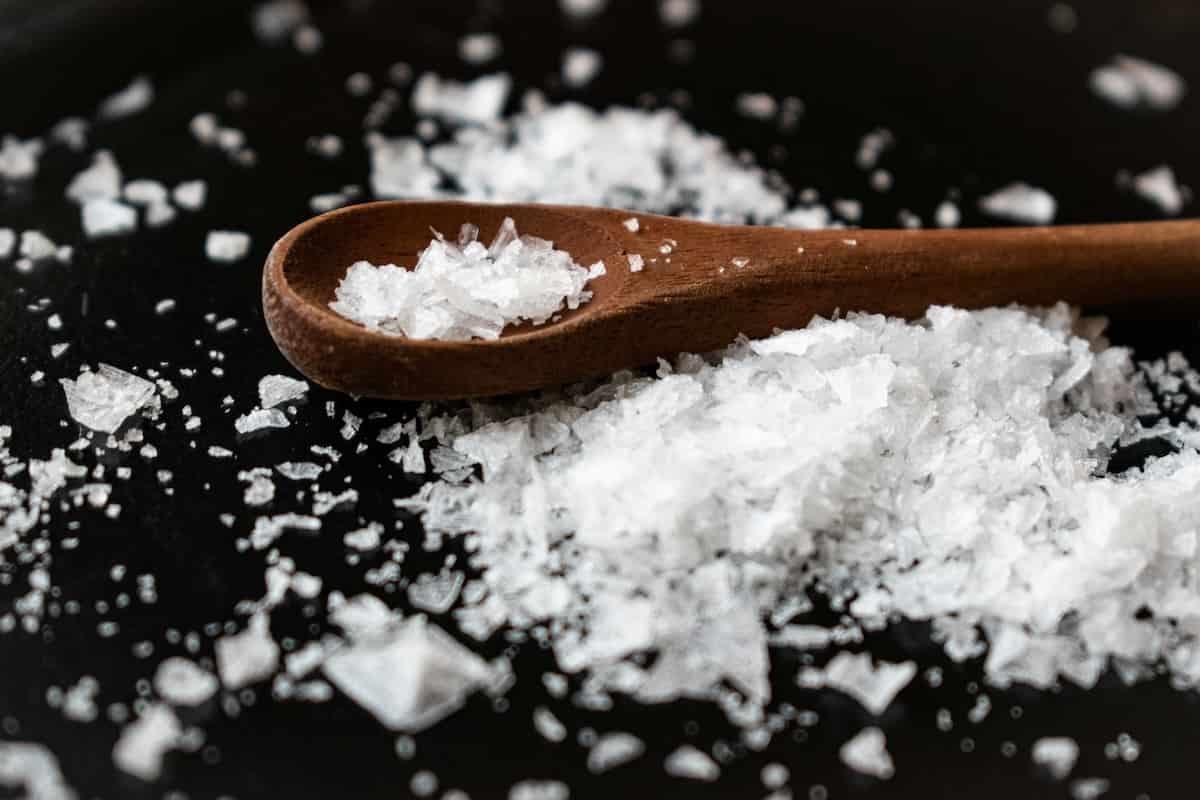Last update: May 31, 2025
8 minute read
What are Enzymes? (and How to Boost Them Naturally)
Discover how enzymes work and what enzymes do in your body. Learn natural ways to boost enzyme function for better digestion, metabolism, and overall well-being.

By Stephanie Wright, RN, BSN
Edited by Dr. Jacquie Leone, NMD, HN

Welcome to our deep dive into enzymes—a topic that answers the age-old questions: what are enzymes, and what do enzymes do? These fascinating biomolecules are essential catalysts in your body, and the function of an enzyme in a biochemical reaction is to speed up processes vital for life.
Whether you're curious about how an enzyme works or exploring the overall enzyme function in digestion, metabolism, and cell repair, this article will explore how enzymes are behind every chemical reaction in your body.
Key takeaways
- Enzymes are proteins or RNA substances that speed up biochemical reactions in your body
- Factors like temperature, pH shifts, enzyme and substrate concentrations, and the presence of inhibitors can influence enzyme function
- Enzymes are an important part of your body, and maintaining their health is a crucial aspect of overall well-being
What are enzymes?
They're substances, mainly proteins (though some are ribonucleic acid or RNA), that trigger biochemical reactions in your body. They do this by binding and modifying molecules known as substrates.
All this heavy lifting happens at the enzyme's "active site,” a specially designed pocket where the magic of molecular transformation happens. When a substrate drops into an enzyme's active site, it's like a key fitting into its perfect lock.
But enzymes are more than just unlockers; they actively tweak their shape to better "fit" their substance to accelerate the reaction. If you've ever wondered why some reactions happen faster than others, it's because of these dedicated little enzymes hard at work! Now that you know what they are, let's dive into how they work and explore the factors that influence their performance.

How do enzymes work?
Enzymes are clever! But what makes them shape-shift to grab onto substances and speed up chemical reactions?
The answer is in their structure - specifically, their active site. It's the engine room of an enzyme, a spot custom-designed to hold only a particular substrate.
Picture it as a lock and its substrate as the key. But these locks are super adaptable, molding themselves around their keys for a perfect fit. Here's how it happens:
- A substrate drops into the active site of an enzyme.
- The enzyme tweaks its shape to surround the substrate perfectly. This shape change is called the induced fit.
- This fit lowers the reaction's activation energy - the kickstarter energy necessary to launch a reaction.
- With less energy needed, reactions occur more rapidly.
How does environment influence enzymes?
Enzymes aren't just workers; they're ultra-sensitive workers! They react to even the tiniest of changes in their environment. Temperature, pH, and enzyme substances all affect their function and reaction rates.
Health made easy: your go-to resource for essential vitamins and supplements

How does temperature affect enzymes?
Enzymes like it cozy. A mild 37°C (or 98.6 F) is their happy place. Any hotter or cooler, their vital chemical bonds change shape, making it hard for substrates to attach. Crank the heat up even more, and enzymes fall apart!
How does pH influence enzymes?
The active site hosts a range of acidic or basic amino acids. Any change in pH can alter these acids, affecting substrate binding. Toss in an extreme pH, and enzymes can denature scientific lingo for crumble apart.
How do enzyme and substrate concentrations impact enzyme function?
- More enzymes and more substrates mean more reactions. But there's a saturation point. Past a certain concentration, adding more enzymes or substrates doesn't speed things up.
- With an increase in enzyme concentration, there will be more sites available for the substrate to attach, increasing the rate of reaction.
- It’s similar to substrate concentration. The more substrate molecules available, the greater the chances of colliding with the enzyme and, therefore, more product formation. Similarly, the effects are only valid up to a specific limit of concentration.

Natural ways to boost your enzyme health
While your body naturally produces enzymes, you can support and enhance their activity by choosing foods rich in natural enzymes. These can help maintain optimal digestive function and overall health:
- Fruits and vegetables: Mangoes, bananas, and papaya are celebrated for their natural enzyme content. For instance, papaya contains papain, a protease that aids in protein digestion, showing what enzymes do when they work on breaking down nutrients.
- Fermented foods: Sauerkraut and other fermented vegetables not only support gut health but also introduce additional enzymes formed during fermentation, reinforcing the idea that the function of an enzyme in a biochemical reaction is to facilitate nutrient absorption.
- Raw honey: In its raw form, honey boasts both amylase and protease, offering a natural boost to your digestive system. These enzymes help break down carbohydrates and proteins, proving that natural sources are a key way to support enzymes effectively.
Adding these enzyme-rich foods to your diet is a simple and delicious strategy to boost your body’s natural biochemical reactions.
Can anything stall enzymes?
Enzymes have their adversaries, too. These molecules, named inhibitors, can reduce or even halt the activity of enzymes in your body’s chemical reactions. They achieve this in two ways:
- Competitive inhibitors: These tricky molecules resemble the enzyme’s surface and hog the active site, blocking other substances from latching on.
- Non-competitive inhibitors: These sneaky substances attach themselves to parts of the enzyme other than the active site. This clever move distorts the enzyme's shape and makes it useless.
Dos and don’ts of maintaining healthy enzyme levels
Keeping your enzymes happy is a balance of the right diet, the best environment, and a dash of know-how. Here’s a quick table of some dos and don'ts to help maintain healthy enzyme levels.
Do’s
Eat a well-balanced, nutrient-rich diet
Include raw fruits & veggies in your diet (they contain natural enzymes!)
Regularly exercise to keep your metabolism (and enzymes) up
Stay well-hydrated
Ensure your diet includes necessary vitamins & minerals
Don’ts
Don't skip meals
Don't lead a sedentary lifestyle
Don’t drink alcohol excessively, as it can harm your enzyme systems
Don't use supplements without proper consultation
Enzymes in your body
Enzymes are a key component of your biological system. They act as triggers in your body, speeding up biochemical reactions and maintaining life as you know it. But, side effects are sometimes seen leading to specific health conditions.
Advantages and disadvantages of enzymes in your body
Recent breakthroughs in enzyme research
Recent breakthroughs in enzyme research are opening exciting avenues for both everyday applications and industrial processes.
For example, a study published on March 29, 2025 by Tropic Biosciences demonstrated how CRISPR gene-editing can disable the polyphenol oxidase enzyme in bananas, preventing them from browning quickly and potentially reducing food waste.
In another advancement, researchers at Northwestern University unveiled a high-throughput, cell-free platform guided by machine learning on January 21, 2025, which enables rapid design and optimization of enzymes for green chemistry applications.
These developments not only deepen our understanding of enzyme function but also show their transformative potential across different sectors.
Frequently asked questions (FAQ)
Here are some frequently asked questions about enzymes.
Final thoughts
In conclusion, enzymes are indispensable for driving the chemical reactions that keep your body running smoothly. Whether you're investigating what enzymes are or wondering what enzymes do, it’s clear that a balanced diet and healthy lifestyle are crucial for maintaining efficient enzyme function.
By including natural sources of enzyme support in your daily routine, you not only optimize digestion and metabolism but also ensure that these essential biochemical catalysts continue to work their magic—proving that the function of an enzyme in a biochemical reaction is to empower life at the molecular level.
Sources and references
Author

Stephanie Wright
Stephanie brings over 13 years of diverse nursing experience to the table, having honed her expertise in critical care, mental health, and utilization management. Her journey as a registered nurse across these various healthcare sectors underscores her adaptability and deep commitment to patient care.
Fact checker

Dr. Jacquie Leone
Dr. Leone holds a BA in Psychology, a Doctorate in Naturopathic Medicine, and board certification in holistic nutrition. In addition to practicing medicine, Dr. Leone has developed and currently teaches science and nutrition courses for a nationally accredited institution. She specializes in chronic illness, gastrointestinal dysregulation, inflammatory conditions, and mental health. Her unique approach combines the wisdom of Eastern medicine with the technology and science of Western medicine, offering an integrative approach heavily focused on functional medicine.
At VitaRx, we're not just passionate about our work — we take immense pride in it. Our dedicated team of writers diligently follows strict editorial standards, ensuring that every piece of content we publish is accurate, current, and highly valuable. We don't just strive for quality; we aim for excellence.
Related posts
While you're at it, here are some other relevant articles you might be interested in.

Get your personalized vitamin recommendations in less than
5 minutes.
Get your personalized vitamin recommendations in less than
5 minutes.






